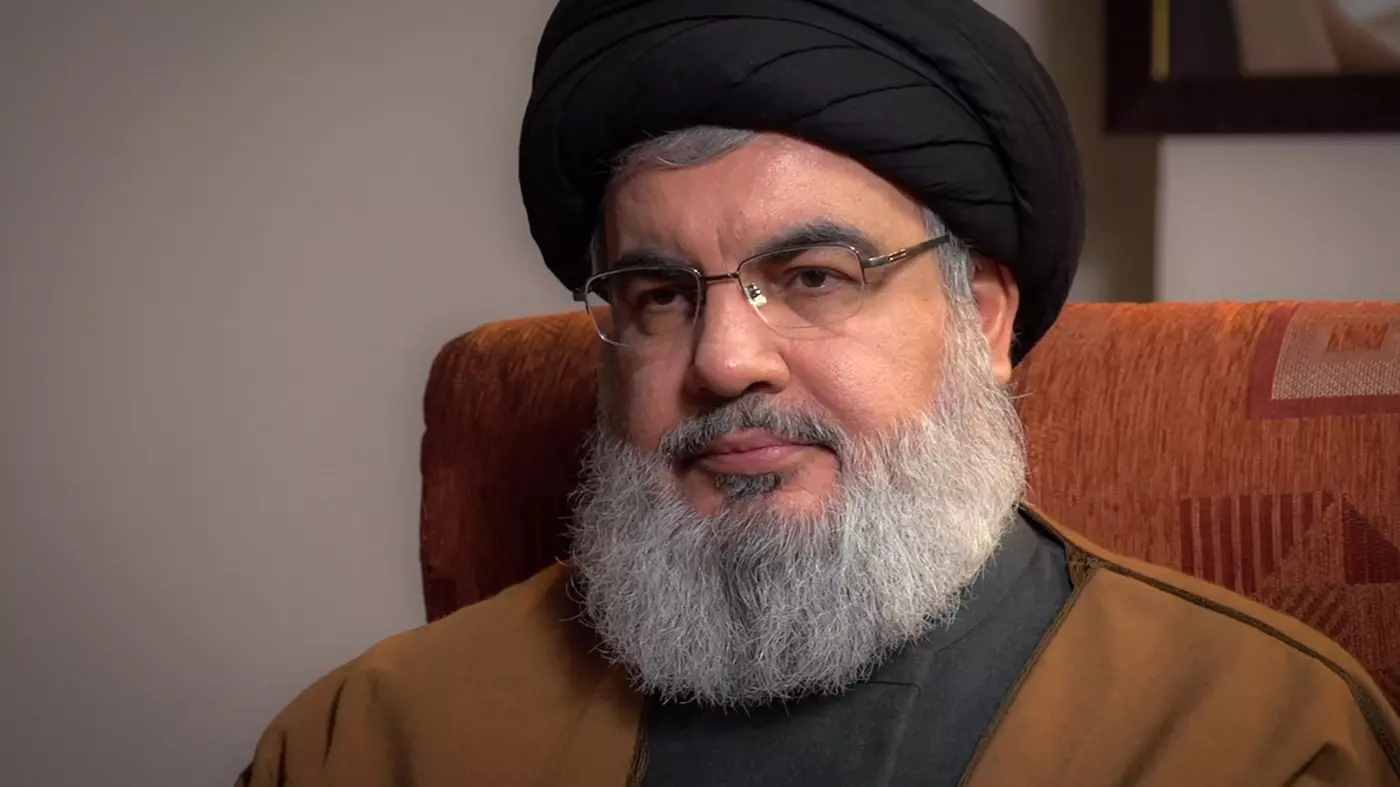
Lebanon’s Hezbollah confirmed on Saturday that its leader, Hassan Nasrallah, was killed after Israel launched a series of airstrikes on the Lebanese capital, Beirut, the previous day.
In a move that risks triggering an all-out war in a region already on the brink of conflict, Israeli fighter jets dropped approximately 10 bunker-busting bombs on residential buildings in the southern suburbs of Beirut, an area known as Dahiyeh, on Friday. .
Images seen by Middle East Eye showed dense clouds of smoke rising from the explosion site.
The Israeli army immediately confirmed that it was behind the attacks and initially stated that its target was Hezbollah’s command center. Israeli media later reported that Nasrallah, 64, was the target of the attacks, but did not confirm his death.
On Saturday, the Israeli army posted a message on X, saying: “Hassan Nasrallah will no longer be able to terrorize the world.”
The Israeli army’s Arab spokesman, Avichay Adraee, also said in a statement on X that Nasrallah was killed alongside Ali Karki, commander of Hezbollah’s southern front, as well as other commanders.
“The message is clear: we will reach everyone who threatens Israel’s citizens in the north, in the south and on fronts beyond.”
Later, Hezbollah said in a statement: “His eminence, the master of resistance, the righteous servant, has left to be with his lord who is pleased with him as a great martyr.
“The Hezbollah leadership promises… to continue its jihad in confronting the enemy [Israel]supporting Gaza and Palestine and defending Lebanon and its people firmly and honorably.”
The statement did not mention who would succeed Nasrallah or how the group would respond to the assassination of its longtime leader.
According to analysts, the man widely considered to be Nasrallah’s heir, Hashem Safieddine, was still alive after Friday’s attack.
Safieddine, who oversees Hezbollah’s political affairs and sits on the group’s Jihad Council, is Nasrallah’s cousin. Like Nasrallah, he is a cleric and a descendant of the Prophet Muhammad.
The US State Department designated Safieddine a terrorist in 2017, and in June he threatened a major escalation against Israel following the assassination of another Hezbollah commander.
Khamenei urges Muslims to confront Israel
Earlier on Saturday, Iranian Supreme Leader Ali Khamenei urged all Muslims to support the people of Lebanon and help Hezbollah in confronting Israel’s “evil regime.”
In a statement published on his official website, Khamenei did not mention Nasrallah by name, but began by condemning the murder of the “defenseless people of Lebanon,” saying “this proved the shortsightedness and senseless policies of Israel’s leaders.”
“Criminals [israelenses] they must know that they are too small to cause any significant damage to Hezbollah’s strongholds in Lebanon,” Khamenei said, adding: “All resistance forces in the region support and stand with Hezbollah.”
He also urged all Muslims to support the people of Lebanon and Hezbollah and to support them in “confronting the usurping and oppressive regime.”
“The fate of this region will be determined by the resistance forces, with Hezbollah at the forefront,” he added.
Speaking to reporters in New York on Friday, US Secretary of State Antony Blinken reaffirmed Israel’s right to self-defense and said Washington would take “all measures” if its interests in the region were attacked.
“Israel has the right to defend itself against terrorism,” Blinken said.
“Anyone who uses this to attack U.S. personnel, American interests in the region, the United States will take all necessary measures [contra eles]”, he added.
Blinken’s remarks came shortly after Abu Alaa al-Walaei, a senior commander of Iraq’s Sayyid al-Shuhada Brigades, warned that if an all-out war broke out, his group would attack U.S. and Israeli interests in the region.
“Even the [Emirados Árabes Unidos]which we consider the outpost of the usurping entity, will be the first line of attack,” Walaei said, according to Hezbollah-affiliated website Al Mayadeen.
In an attempt to ease tensions, a Pentagon spokesman said the US had no advance warning of the attacks. The spokesperson added that US Defense Secretary Lloyd Austin spoke with his Israeli counterpart while the operation was underway.
Who was Nasrallah?
Nasrallah’s death could deal a significant blow to Hezbollah, after the longtime leader oversaw the group’s transformation into a major political force both in Lebanon and the wider Middle East.
Born in 1960 to a poor Shiite family in East Beirut’s Karantina, Nasrallah became head of Hezbollah’s executive council in 1985, as well as a member of its Shura Council.
In 1992, then-Hezbollah leader Abbas al-Musawi was killed in an Israeli airstrike along with his wife and son. Speaking at his funeral, Nasrallah said: “We will continue on this path… even if we are martyred, all of us and our houses are demolished over our heads, we will not abandon the choice of Islamic resistance.”
Nasrallah then took over the reins of Hezbollah and soon after, the group began acquiring more sophisticated weaponry, including long-range rockets capable of reaching deep into Israeli territory.
Under Nasrallah, whose surname translates as “victory through God,” Hezbollah grew from a local armed movement into the largest political party in Lebanon’s recent history.
In October 2021, Nasrallah stated that Hezbollah had 100,000 fighters, also making it one of the most powerful non-state armed organizations in the world.
He also maintained Hezbollah’s reputation throughout the Arab world as the only armed force that managed to force Israel to retreat from an Arab country.
The Hezbollah leader’s speeches often attracted attention from the Middle East and beyond.
During his time as leader of Hezbollah, Nasrallah also saw the strengthening of ties within Iran’s “axis of resistance,” which includes Hezbollah, the government of Syrian President Bashar al-Assad, the Palestinian Hamas and Islamic Jihad movements, the Houthi in Yemen and several Iraqi paramilitary groups.
Following Friday’s attacks, Hamas, Islamic Jihad, the Houthis and the Iraqi Islamic Resistance released statements condemning Israel.
“We renew our absolute solidarity with the brotherly Lebanese people and our brothers in Hezbollah and the Islamic resistance in Lebanon,” Hamas said in a statement.
“We share your pain and hope for victory over this Zionist enemy, and we value and commend your sacrifices and steadfastness in the epic of open responsibility in support of our people and our resistance, and in response to and defense of the brotherly Lebanese people.”
By Nader Durgham in Beirut and Umar A Farooq in Washington, for Middle East Eye.
Source: https://www.ocafezinho.com/2024/09/28/lider-do-hezbollah-hassan-nasrallah-e-morto-em-ataque-em-beirute-confirma-grupo/

